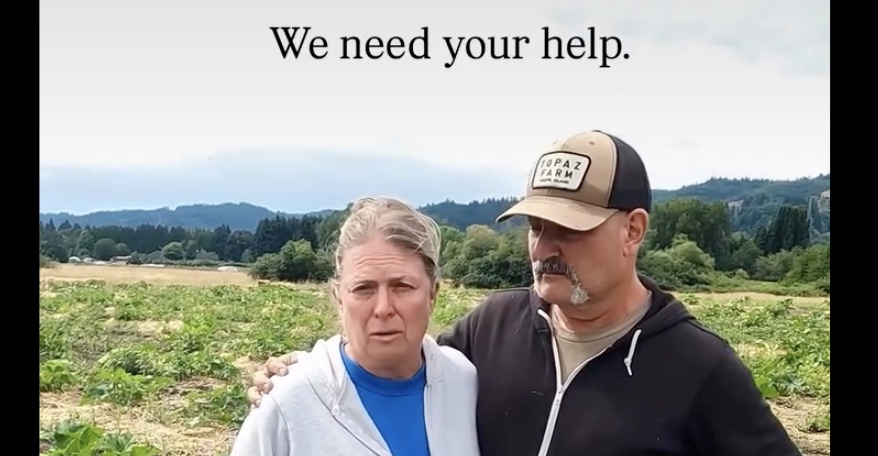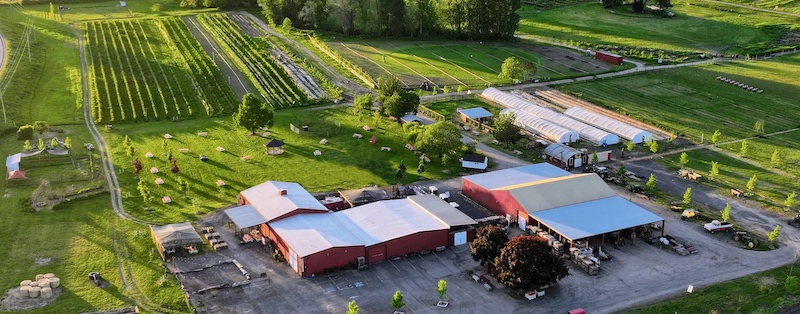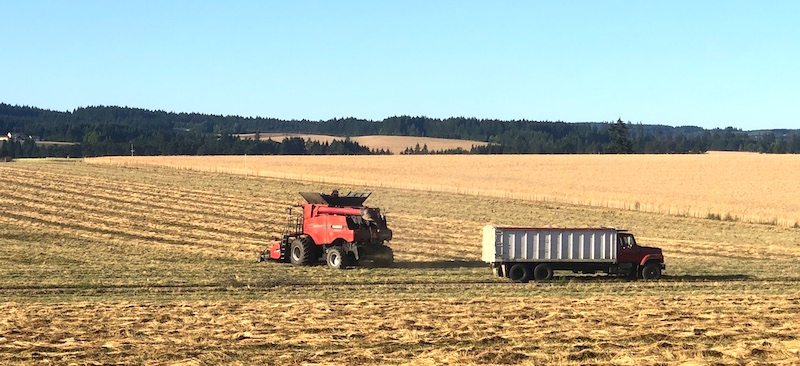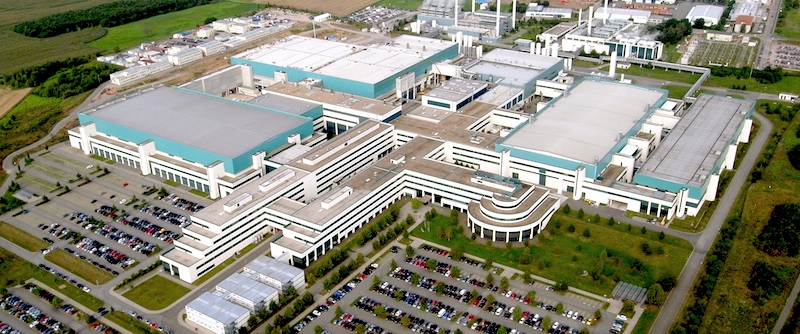
Viral Topaz Farm Video Part of Larger Anti-Land Use Campaign
Two farmers, Kat Topaz and Jim Abeles, stand in a rutted field. Jim's arm is around Kat's shoulders and a caption floats over their heads that reads, "We need your help." Tearily, Kat says, "It doesn't feel right to be sharing bad news, but it's at that point we need help."
What bad news is this homey farm couple talking about?
Jim explains, "DLCD, the [Oregon] Department of Land Conservation and Development, has come out with a policy recommendation that if it's adopted later this year will make it virtually impossible for agritourism to survive."

"The DLCD rules will put the nails in the coffin for us," adds Kat.
Jim continues, "If you enjoy u-pick, if you enjoy farm-to-table dinners, if you enjoy pumpkin patches, if your kids enjoy a hayride or cow train, these are the kind of things that we and other farms are going to lose."
It certainly sounds dire.
The video has gone viral, not just locally, but has been reposted on the feed of at least one nationally recognized influencer. With so much injustice happening around us every day, from Los Angeles to Gaza, it's not surprising that a tearful plea from local farmers pulls at our sympathies.
But it's not what it purports to be.
Alice Morrison, co-director of Friends of Family Farmers, an advocacy organization for Oregon's small farmers, said she wasn't surprised at the outrage the video has generated. "I totally understand that if what they were being told was 100 percent true, I'd be furious, too," she said.
"These rules do not outlaw farm stands, ban u-pick, or prohibit on-farm events.
This is only to do with farm stand permits, and has no bearing on all the other types of agritourism permits which allow on-farm concerts, festivals, private events, etc."
Morrison, however, knows that it isn't entirely accurate—or as one wag put it, it's "truth-adjacent." That's because Morrison has been on the Rulemaking Advisory Committee (RAC) for the DLCD since a legislative working group decided that the sweeping changes proposed for farm stands in the 2025 legislative session in HB 3133 would be better dealt with in the rulemaking process.
In a statement FoFF released on its blog directly addressing the sturm und drang generated by the Topaz Farm video, it states:
"These rules do not outlaw farm stands, ban u-pick, or prohibit on-farm events. This is only to do with farm stand permits, and has no bearing on all the other types of agritourism permits which allow on-farm concerts, festivals, private events, etc. Regulations on agritourism vary by county and we do intend to address that discrepancy as well, but this RAC is only about farm stands."

So what's really going on?
On its website, Topaz Farm lists myriad activities like classes in pickling, dyeing using plants growing on the farm, farm tours, farm-to-plate dinners and more. Then there are the crops they grow, including berries, pumpkins, greens, onions, garlic, tomatoes, potatoes…the list is long.
Topaz Farm is not answering questions about the video, instead referring callers to Samantha Bayer, the General Counsel at the Oregon Property Owners Association (OPOA), which describes its mission as"protect[ing] the right of private property owners to make use of their property. At the legislature and ballot box, in the courts, working with the media, and through our many educational efforts, OPOA works to reduce the regulatory barriers that hamper Oregon’s private property owners."
Interestingly, the OPOA is using startlingly similar messaging to that used in the Topaz Farm video, getting traction with headlines like "DLCD’s Farmstand Rulemaking: A Critical Moment for Fate of Agritourism." Oregonians who've followed legislative politics will recall the name Dave Hunnicutt, OPOA's president, as being connected with past anti-tax campaigns and other efforts to undercut Oregon's groundbreaking land use laws. On the OPOA website Hunnicutt is described as “a registered Oregon lobbyist" who "has successfully advocated for the passage of legislation to protect Oregon property owners."

The deadline of July 25th to submit comments is also not accurate, according to FoFF's Morrison. "It hasn't even gone through legal review yet," she said in an interview, noting that the draft is just the first step in the revised rule-making process. Public comment can be sent to DLCD until Nov 7, and FoFF anticipates more amendments to these drafts are coming before formal public meetings in the fall where the public will have the opportunity to respond to the proposed rules.
Morrison said that FoFF is particularly encouraged by the emphasis on educational activities that are proposed in the new farm stand classification, as well as the effort to clarify the rules across Oregon's 36 counties, which are currently not enforcing the standards consistently due to the vagueness of the current language. Morrison also considers the effort to differentiate farm-produced products from what are termed "incidental products" a priority (see FoFF's blog post for details). Morrison adds that although progress has been made in these areas, FoFF does see some areas for concern in the current proposal especially around proposed premit review cycles and costs.
This is a developing story, so stay tuned for updates!
Top photo from Topaz Farm video. Aerial photo of Topaz Farm from their public Facebook page.

